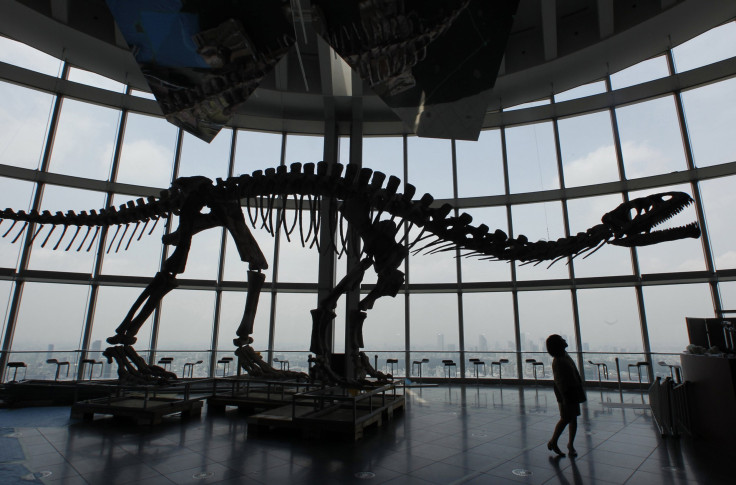Brontosaurus Officially A Dinosaur Again? Paleontologists' Study Finds Differences Between The Long-Neck Dinosaur And Apatosaurus

Paleontologists everywhere cheered Tuesday a bit of breaking news in their ancient field: The brontosaurus did exist, after all. A study published Tuesday in the PeerJ science journal found differences between the long-necked Brontosaurus and the Apatosaurus, the genus it's been grouped with 1903. There's now enough evidence to suggest the two are distinct.
"It's the classic example of how science works," researcher Octávio Mateus said in a news release. "Especially when hypotheses are based on fragmentary fossils, it is possible for new finds to overthrow years of research."
The Brontosaurus, often a favorite of children and "Flintstones" fans, was discovered in the 1870s by paleontologist Othniel Charles Marsh. He found skeletons of two dinosaurs with long necks within a two-year period, the Washington Post reported. One he named the Apatosaurus ajax; the other, Brontosaurus excelsus. He was hurrying in an effort to beat his rival Edward Drinker Cope. "They really rushed new species into press as fast as possible, and many of these reference specimens on which they based new species are extremely fragmentary and are not comparable directly," Nova University paleontologist Emanuel Tschopp told Nature.
After Marsh died in 1899, another group of scientists found a third skeleton that resembled both. They decided that the Brontosaurus was so much like the Apatosaurus that they should be grouped together under one genus -- Apatosaurus. The name Brontosaurus was no longer valid.
In their recent research, Tschopp and his team looked at fossil classification methods and the dinosaurs' anatomical traits. It took them five years to reconstruct the family tree. This, along with additional discoveries of Brontosaurus and Apatosaurus skeletons, helped them make the call to re-establish the Brontosaurus as a separate genus. "It matches up to a suspicion that I think a lot of workers had -- that there is a lot of diversity in Apatosaurus that might be going unrecognized," Mount Aloysisus College professor John Whitlock told the Post.
Although Vocativ noted that "there's bound to be backlash," the researchers said they knew what was coming. The paleontologists hoped to at least inspire debate. "We knew it would be a major finding because Brontosaurus is such a popular name,” Tschopp said. “I’m pretty sure there will be a scientific discussion around this. I hope there will be."
© Copyright IBTimes 2024. All rights reserved.












